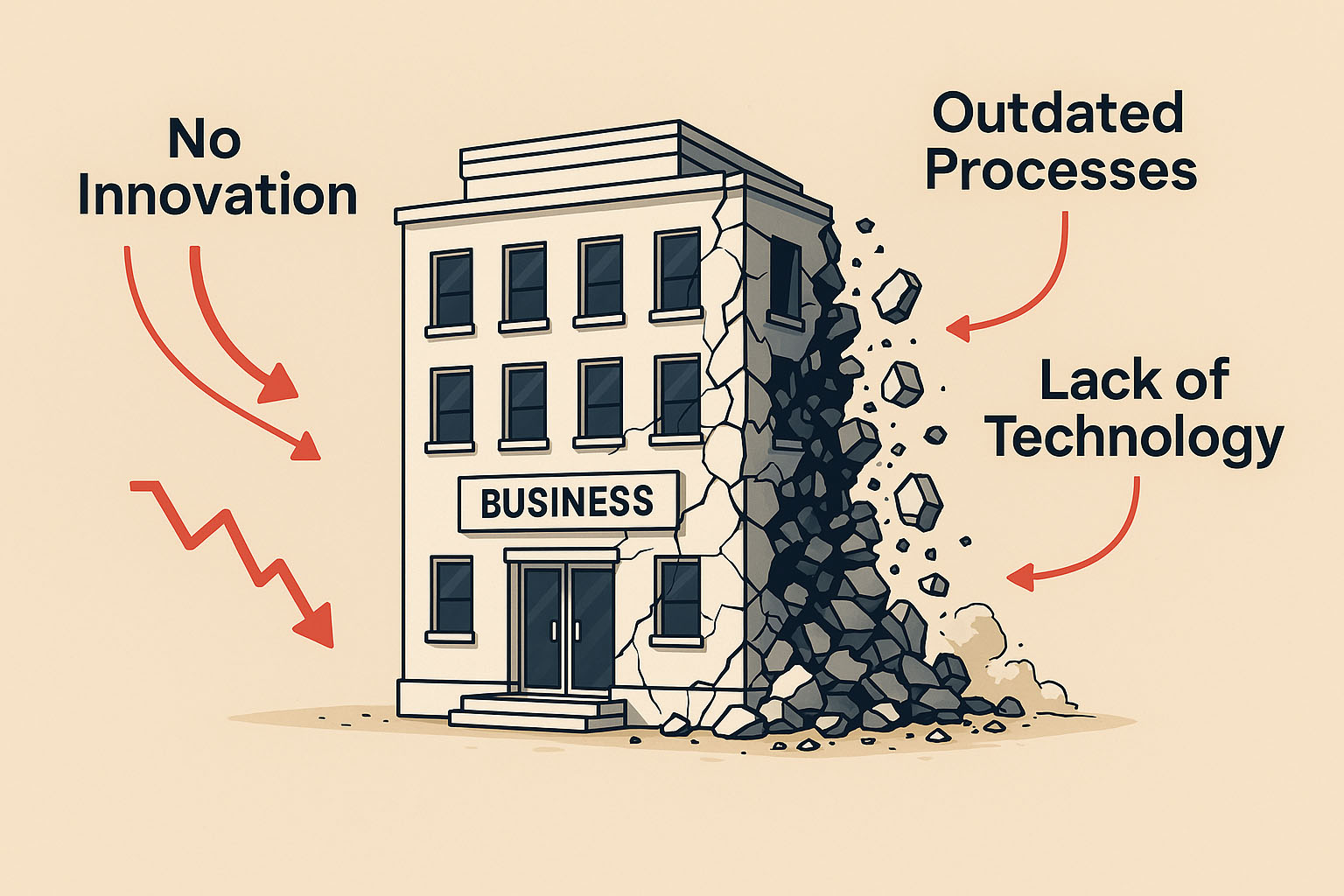In an era marked by rapid technological advancement, the term “digital transformation” has moved from buzzword to business imperative. Yet, despite its importance, many companies remain stagnant, operating within outdated models, resistant to change, and blind to the slow decay of their relevance. This decay is what we call the Erosion of Progress — a gradual, often invisible decline that eventually leads to irrelevance and failure.
Below are four critical reasons why businesses that resist digital transformation will face the “erosion of progress” and, ultimately, failure.
1. Operational Inefficiencies Compound Over Time
The first sign of erosion is often internal. Outdated systems and processes create bottlenecks, slow down workflows, and frustrate teams. As technology advances, competitors streamline their operations, reduce costs, and accelerate delivery—while legacy businesses fall behind.
Digital transformation enables automation, real-time data sharing, and agile workflows. Without it, inefficiencies silently accumulate until they become barriers to growth.
According to the SAP Center for Business Insight and Oxford Economics, 80% of organizations that completed digital transformation reported increased profits, and 85% saw increased market share [Source].

2. Customers Expect Seamless, Digital-First Experiences
Modern customers are conditioned by seamless digital experiences. They expect personalization, instant access, and frictionless interaction. Businesses that fail to deliver these experiences become forgettable.
When companies don’t evolve with customer expectations, they risk losing relevance and trust. Digital transformation enables businesses to meet these expectations through better UX, faster service, and more meaningful engagement.
A Salesforce report found that 88% of customers say the experience a company provides is as important as its product or services [Source].
3. Talent Leaves for Forward-Thinking Organizations
Top talent wants to work with innovative companies. They seek environments that value creativity, agility, and technological fluency. If a company clings to outdated systems and rigid thinking, it becomes less attractive to high-performing professionals.
Digital transformation signals that a business is future-focused. It empowers teams with better tools and creates a culture of progress. Companies that fail to evolve risk not only losing customers, but also their best people.
A LinkedIn Workplace Learning Report revealed that 94% of employees say they would stay at a company longer if it invested in their career development, which often includes digital skills and tools [Source].

4. Artificial Intelligence Will Disrupt Faster Than You Can React
AI is no longer on the horizon—it’s here, and it’s rapidly reshaping industries. Companies that fail to embrace AI as part of their digital transformation strategy will be outpaced by those that do. From predictive analytics and automation to personalization and decision-making, AI is enabling faster, smarter, and more scalable business operations.
A 2023 McKinsey report found that AI could add $4.4 trillion annually to the global economy, and companies that integrate AI early will see significantly greater performance gains [Source].
Businesses that ignore AI risk becoming irrelevant in record time. The gap between adopters and laggards is growing wider by the day, and without a proactive approach to AI integration, companies will struggle to stay competitive, let alone lead.
The Path Forward: Embracing Digital Intelligence
The Erosion of Progress is avoidable. The new path forward requires all businesses to become digital-first companies. Companies must embrace digital intelligence — the strategic use of data, AI, and digital systems to inform decisions, enhance performance, and design smarter experiences for their customers.
Transformation is more than technology. It’s also about culture, leadership, and vision. Companies must challenge outdated assumptions, embrace innovation, and define their own story arc—the emotional climax that captivates customers and builds loyalty.
The cost of standing still is no longer just lost opportunity. It’s extinction. The future belongs to those who rethink, reimagine, and transform.

